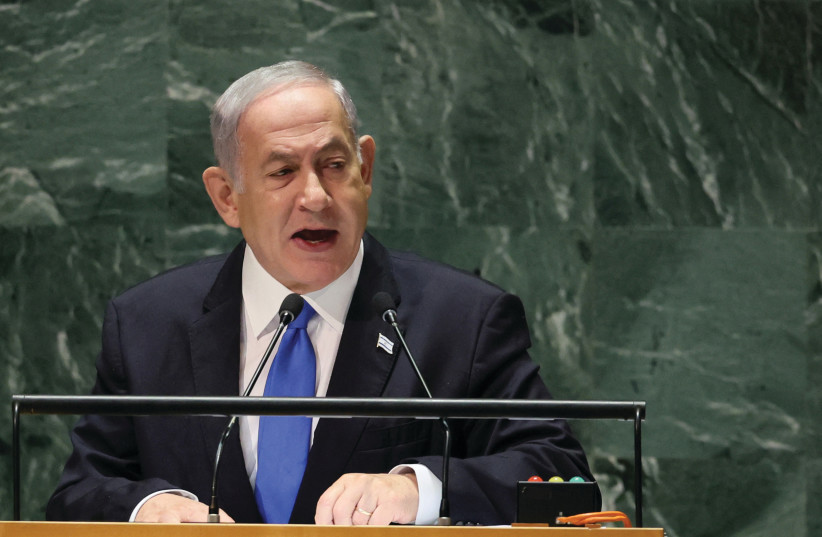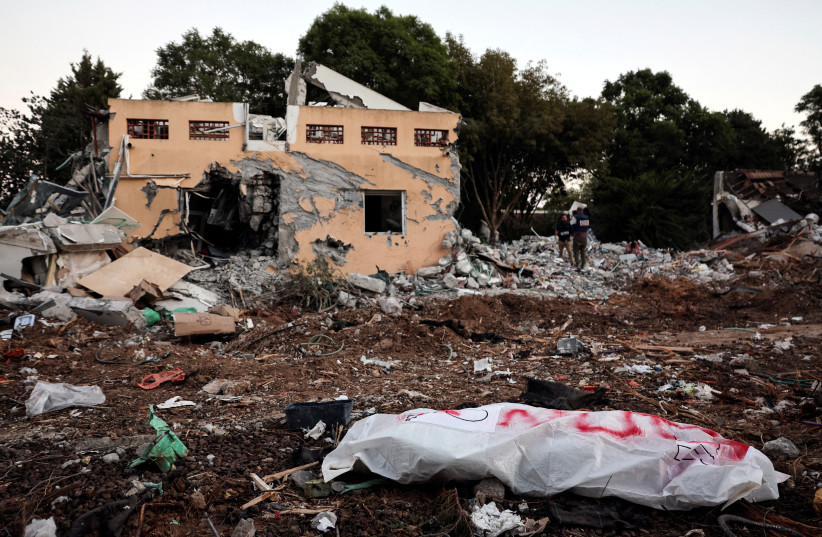As they recover from the shock of Hamas’s barbaric slaughter of innocents and bloody incursions into their country, Israelis are asking whether Prime Minister Benjamin Netanyahu was too busy waging war against Israeli democracy, appeasing West Bank settlers and religious fanatics, and trying to stay out of prison to pay any attention to Gaza.
Now that the IDF has retaken control of its territory and is combing the area for stray terrorists, the rockets keep coming from Gaza and the retaliation has begun. It increasingly appears the now-former Mr. Security, as Bibi likes to fashion himself, wasn’t paying much attention to Hamas. Like his friend Donald Trump, however, Netanyahu never takes responsibility when things go wrong, and quickly points fingers of blame at everyone else.
One of those fingers will be pointed at the pro-democracy protesters, wrongly charging that they, and not his autocratic ambitions, were fracturing the nation and threatening national security by projecting an image of division and weakness, which incentivized Hamas.
The judicial coup and its backers’ steadfast refusal to compromise brought out millions of demonstrators who feared for the nation’s democratic survival. Many IDF reservists had refused to serve such a government, but when the war erupted they quickly dropped their protests – albeit for the duration – and reported to duty.
Would Bibi set his ego aside?
If Netanyahu wants to unite the country and begin its healing, he must heed the growing calls to step down. The most divisive figure in the country cannot heal the deep rifts he has torn open.

BY CONTRAST, 50 years earlier, in the 1973 Yom Kippur War, president Richard Nixon delayed a resupply several days as his defense secretary and others thought Israel was exaggerating its needs. The president ultimately ordered resupply – not any concern for Israel, but because he saw the conflict as a proxy for the US-Soviet rivalry.
A big problem in Washington is whether House Republicans can resolve their political civil war and pick a speaker and leadership that can help pass urgently needed assistance for Israel, as well as Ukraine. Biden will want to link the two, citing their urgent need for ammunition and other replacements, but he will encounter opposition to Ukraine aid by pro-Russian and MAGA Republican isolationists.
Senate Republicans are also tied in knots by one of their own. Alabama Senator Tommy Tuberville refuses to release his holds on the promotions of top military personnel, including the chief of naval operations, who will be essential to directing America’s role in the new Mideast conflict. Biden is also asking the Senate to speed up the confirmation of Jack Lew as the next ambassador to Israel, so he can deal with the current crisis.
As both political parties compete to show that they love Israel more than the opposition, they’ve already begun a tsunami of resolutions, speeches, letters, and press releases declaring support for Israel and condemning Hamas and its patrons in Tehran. But the real test will be when the votes are called on the spending bills.
THIS WAR exposed a massive intelligence failure on Israel’s part, but there may have been a warning that was ignored.
An Egyptian intelligence official told the Associated Press that his country’s intelligence minister had personally warned Netanyahu that Hamas was planning “something big,” an “explosion,” “very soon,” but he offered no details. The source told the AP that the Egyptians were shocked by the PM’s indifference and preoccupation with the West Bank, the Times of Israel reported.
Netanyahu dismissed the report as “fake news.”
Hamas launched an effective, deadly, and impressive surprise four-pronged attack (land, sea, air, and cyber) that killed more Jews on any single day since the Holocaust. Over a hundred Israelis and a number of American and other foreign civilians are being held hostage by the terrorists in Gaza, as likely human shields.
The well-prepared, total surprise attack could not have been carried out without Iran, which provided training, equipment, funds, and weapons.
Iran wants to derail Israeli-Saudi normalization, which would include a US-Saudi defense pact and create an alliance of its most dangerous enemies. It worked.
For the foreseeable future, little if anything can happen while the Israeli-Palestinian conflict is in such turmoil. Iran sees normalization as “a huge transformative event” that could reshape the Middle East, said Dennis Ross, a former US Mideast peace envoy.
When the Saudis insisted that the Palestinian Authority must see some benefits from the new alliance, Hamas saw that as another threat to its bid to take power from its rival Fatah in the West Bank.
Netanyahu, for his part, embraced normalization as a defacto end to the Israeli-Arab conflict and justification for ignoring the Palestinians, and continuing the occupation in exchange for tossing the West Bankers a few crumbs and lots of Saudi riyals, but never a state of their own.
Netanyahu is said to believe that the Saudis, for all their rhetoric, are no longer willing to let Palestinian inflexibility in negotiations with Israel prevent them from making their own peace with the Jewish state. Hamas went to war this week to thwart that.

